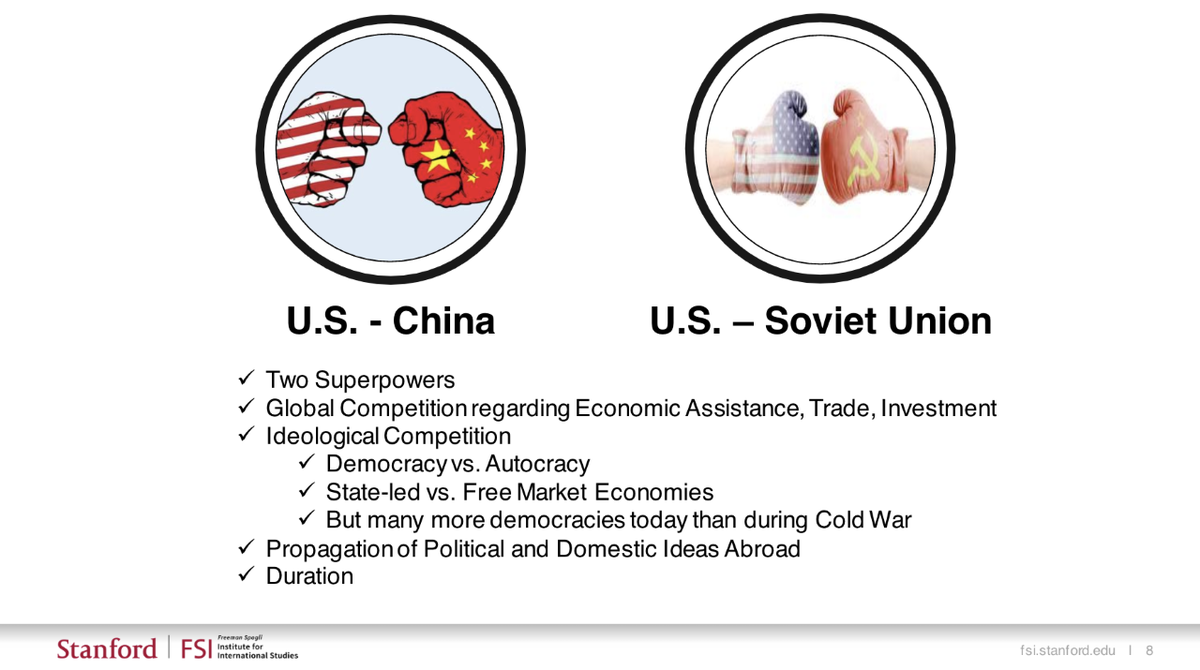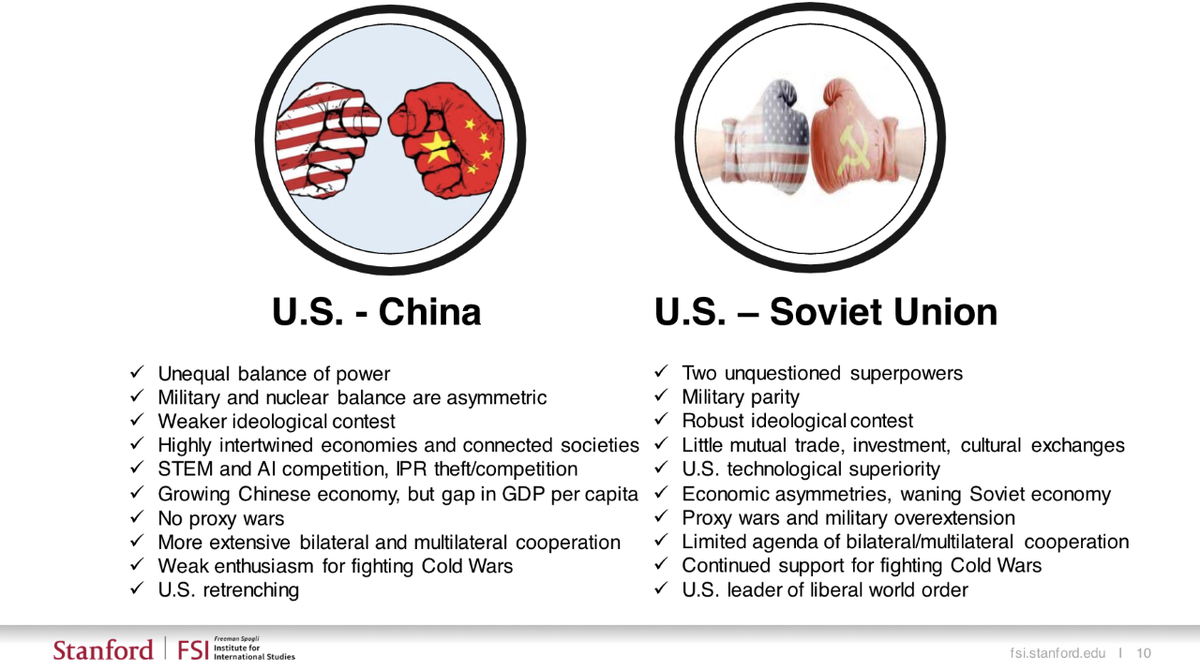The deployment of the Cold War as a historical metaphor to explain our new "cold war" with China today needs to move beyond over-simplistic, black & white slogans. Its complex. THREAD 1/
Of course, there are SOME similarities. Here& #39;s a slide from my talk on the subject. 2/
The U.S. needs to learn the lessons -- and non-lessons -- from the actual (not the imagined one) Cold War, both to avoid past mistakes and build from past wins in the 20th century for dealing with China in the 21st century. 4/
Those advocating for a new Cold War with China tend to downplay the costs of that war. It wasn& #39;t "cold." Millions died in mostly senseless proxy wars. We made some awful mistakes in misunderstanding the enemy (ie. Vietnam, Angola, Chile, Iran) 5/
Containment also was a very elastic term that included everything from Nixon& #39;s detente to Reagan& #39;s rollback. To those advocating a return to Cold War tactics for dealing with China, do you mean Truman, Ike, Kennedy, Nixon, or Reagan? 6/
They also tend to overestimate Chinese power & purpose, a mistake we made in our assessments of the Soviets especially in the 1970s. Does China really have the capacity to rule the world? Is Xi really the heir to Stalin? I& #39;m skeptical. 7/
And like our assessments of the USSR in the 1970s, we discount China& #39;s internal challenges at our peril. (Remember all those bipolar equilibrium theories from the 1970s like Waltz? Didn& #39;t look so robust in 1991) 8/
Conversely, those who reject the Cold War analogy tend to downplay the ideological dimension of our confrontation with the PRC. It& #39;s real. It will be with us for a long time. & Chinese growing power is also real (though still well behind US power). Both power & regimes matter. 9/
Individuals matter too. The change from Khrushchev to Brezhnev to Gorbachev changed dynamics in the Cold War. So too did changes in US leadership. Hu to Xi matters. Obama to Trump matters. 10/
And of course, the USSR was never as integrated in the global economy as China is today. Those believing that global containment of and complete decoupling with the PRC will be easy - like the Cold War -are grossly underestimating the costs and challenges of such a strategy. 11/
Americans also should not take false comfort in believing that we can roll out the old Cold War playbook and "win" again. First, we didn& #39;t win alone. Millions of Poles, Czechs, Russians, Estonians, Ukrainians, Georgians, etc helped defeat communism & end the Cold War. 12/
Second, our ideological leadership of the free world was in much better shape in the 1980s than it is today. 13/
Third, and related, so too were our relations with allies. We had our Cold War struggles within NATO too, but not like today in the Trump era. (That damage is not permanent... yet) 14/
Fourth, the American people were also more united about many matters, including our fight against communism. Today, we are deeply divided about many things; isolationist tendencies are much greater today than anytime during the Cold War. 15/
To avoid war with China & advance American security, economic and ideological interests will require a sophisticated mixed strategy of containment, deterrence, diversification, isolation & engagement (including dual track engagement of the state and society). 16/
To succeed, such a strategy will require broad-based American support at home as well as embrace from our allies. We also should dig in for the long haul. The Cold war lasted 4 decades, and victory did not always seem certain. 17/
Sound confusing & complex? Yes. But oversimplifying either what the Cold War really was or overstretching the analogy to explain our current relations with China only gets in the way of a smart, multi-dimensional, nuanced, successful, bipartisan, allied-supported policy. 18/ END

 Read on Twitter
Read on Twitter



